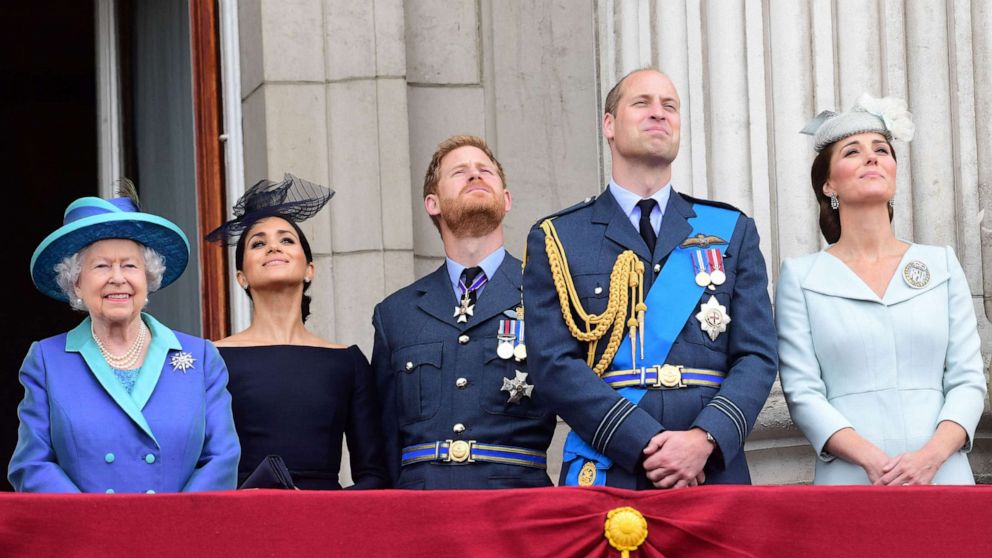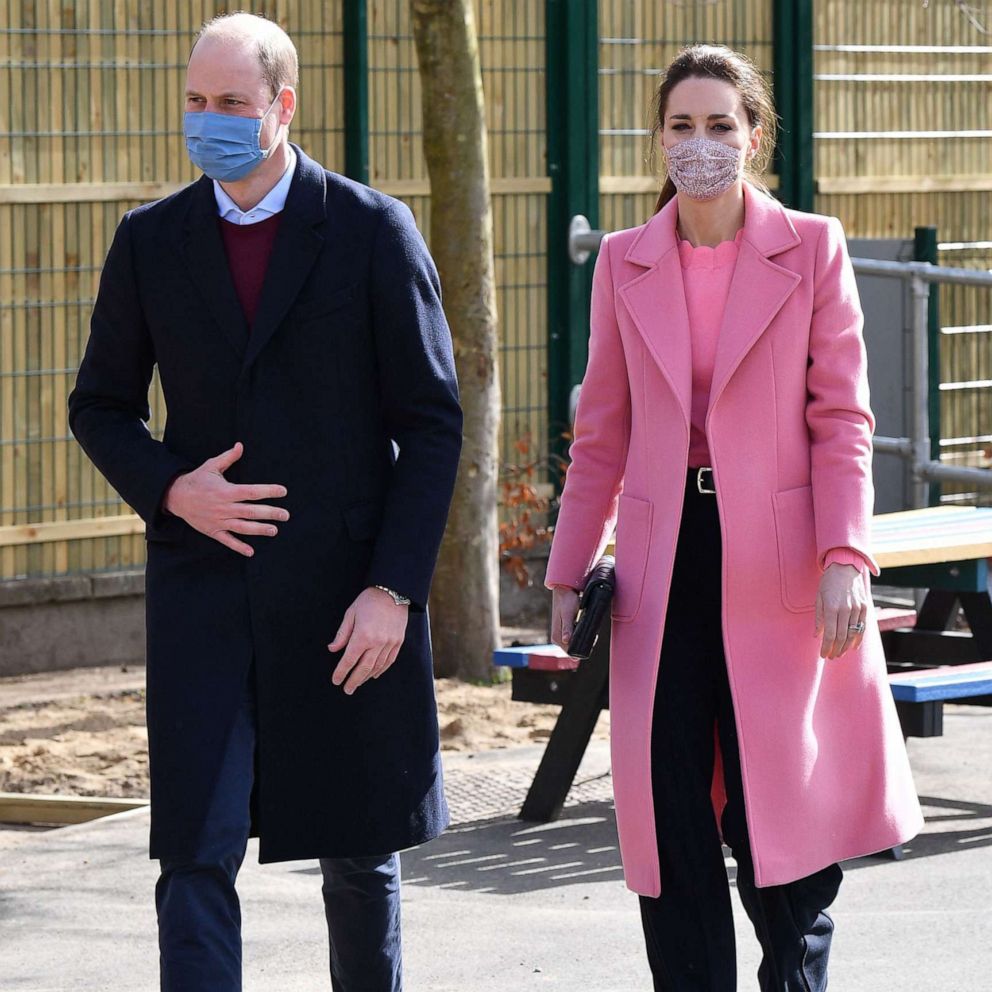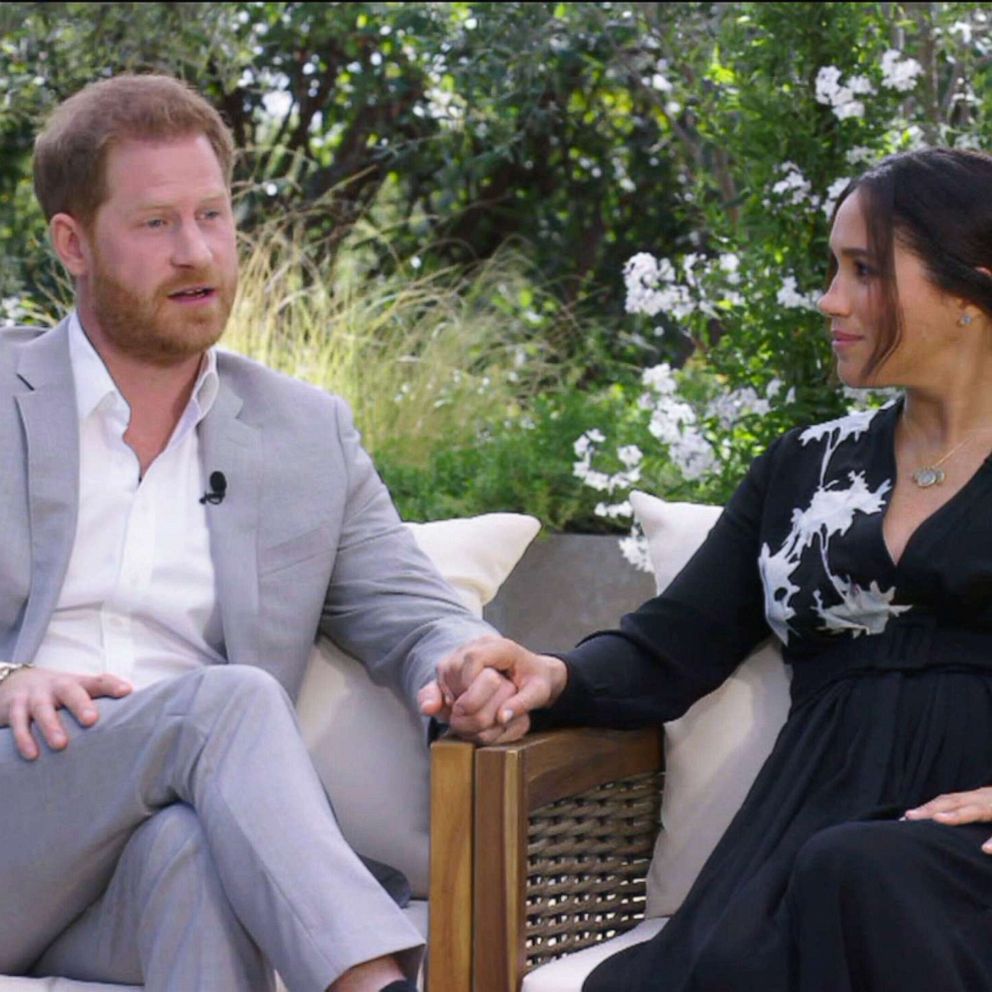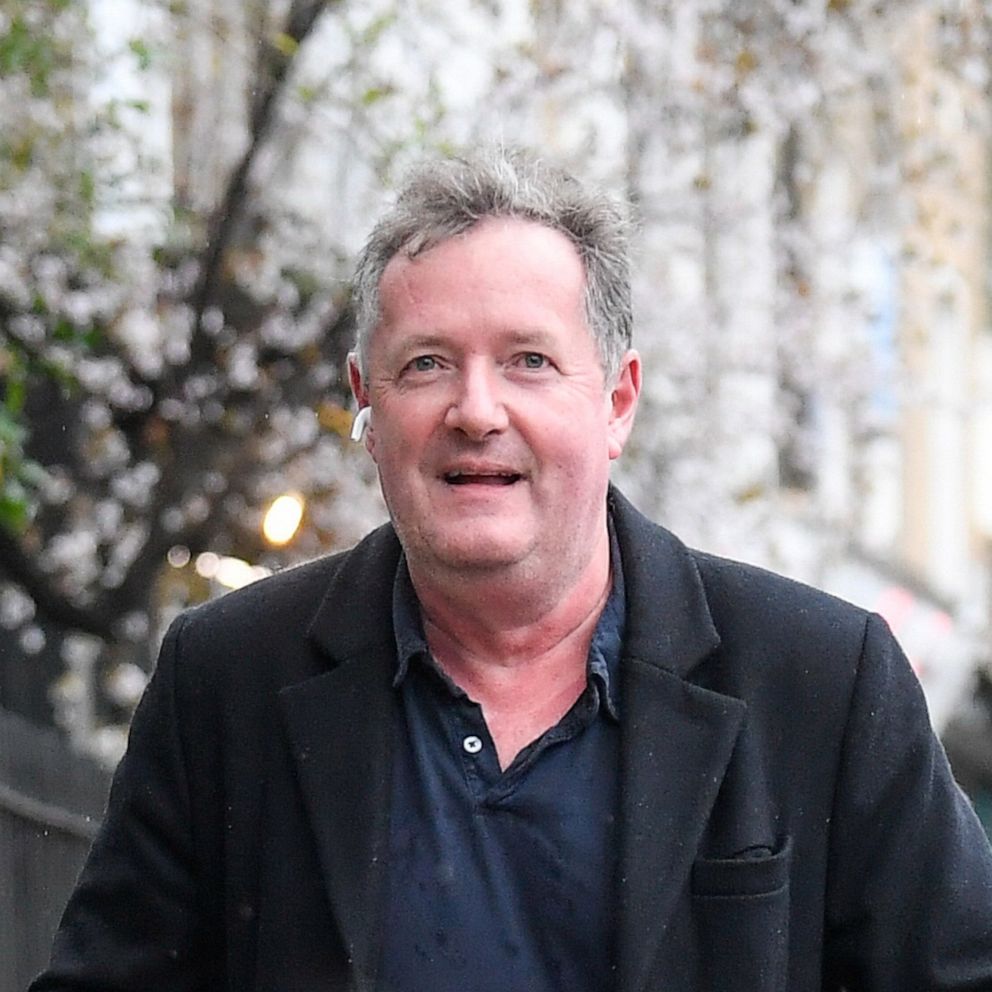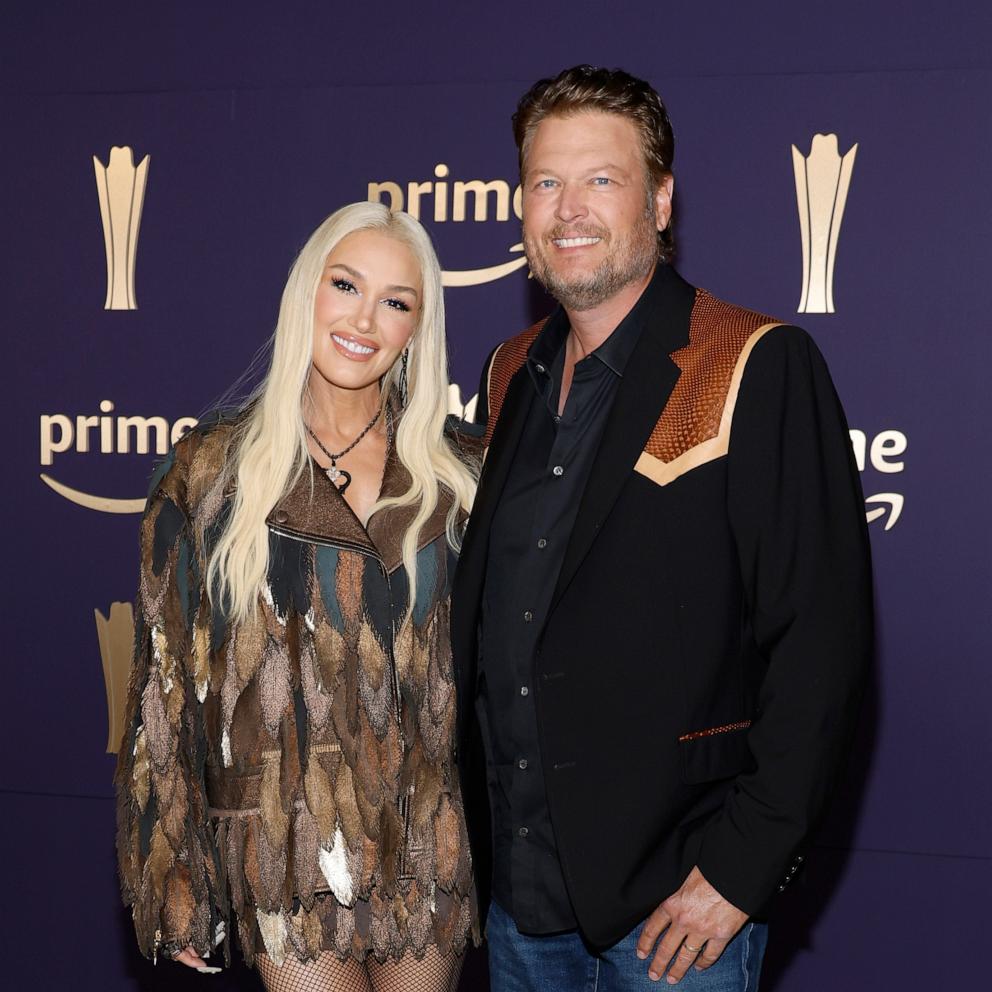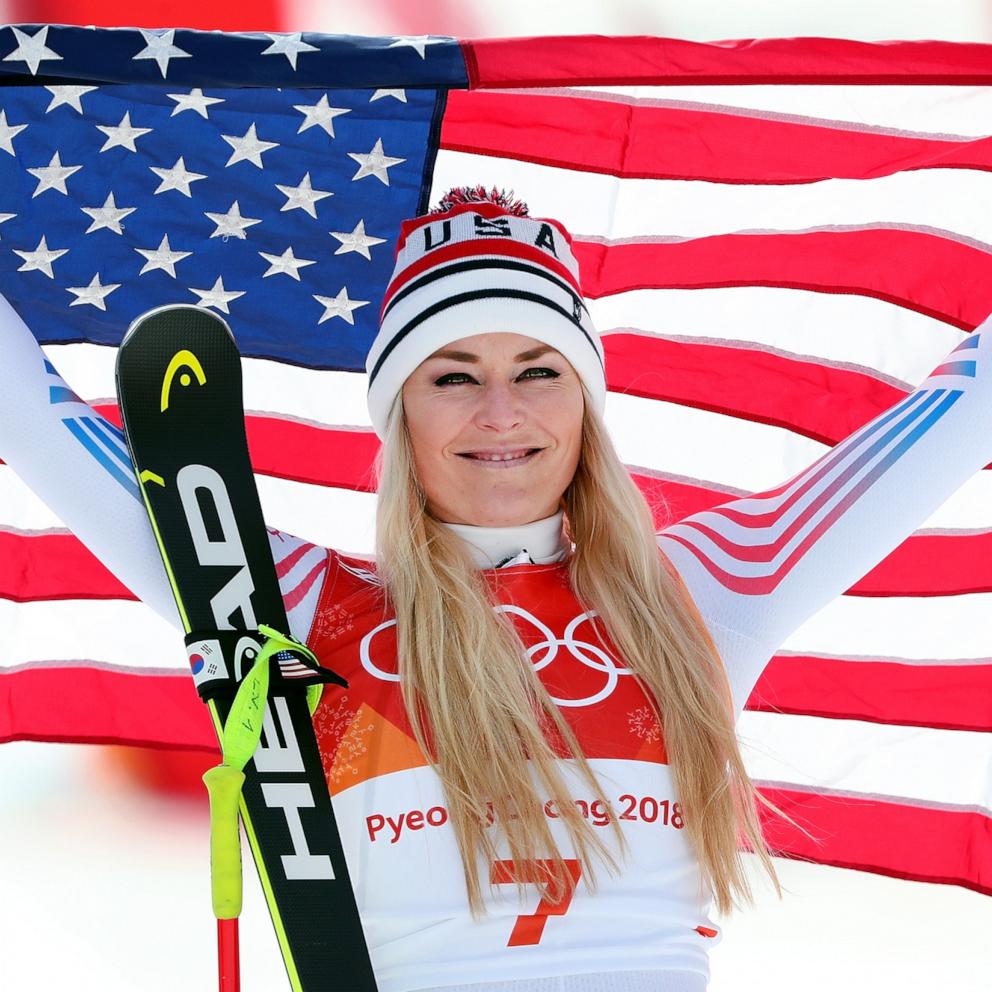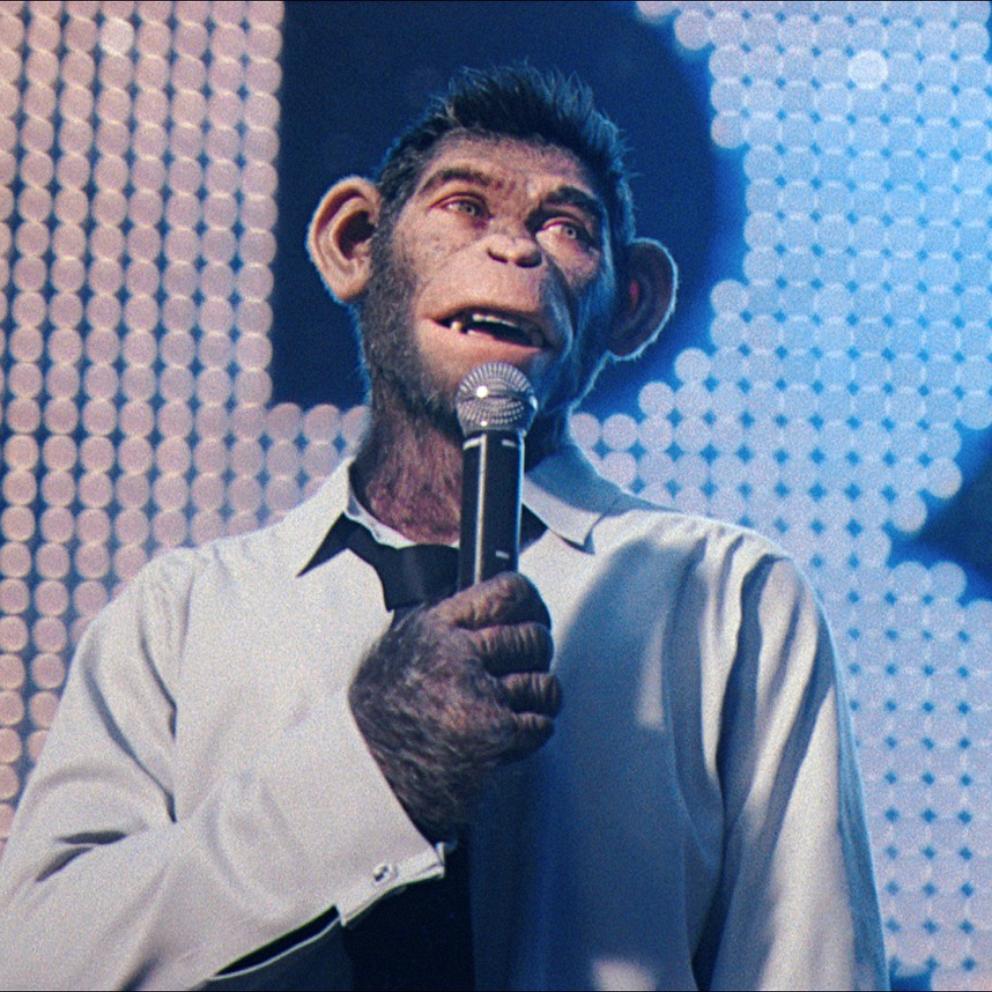Britons still more sympathetic to queen, royal family after Harry and Meghan interview
Prince Harry and Meghan Markle's explosive and intimate interview -- in which they alleged racism within the royal family, serious mental health concerns and being cut off financially -- did little to change the minds of most British people about the monarchy, according to recent polls and public commentary.
A poll conducted by YouGov for Sky News showed that Britons were more sympathetic toward Queen Elizabeth II and the royal family than the Duke and Duchess of Sussex.
Thirty-six percent of people said they were more sympathetic to the royal family, a 2-point drop compared to polling done on March 4, while 22% of people said they more sympathetic to Harry and Meghan, a rise of just 4 points.
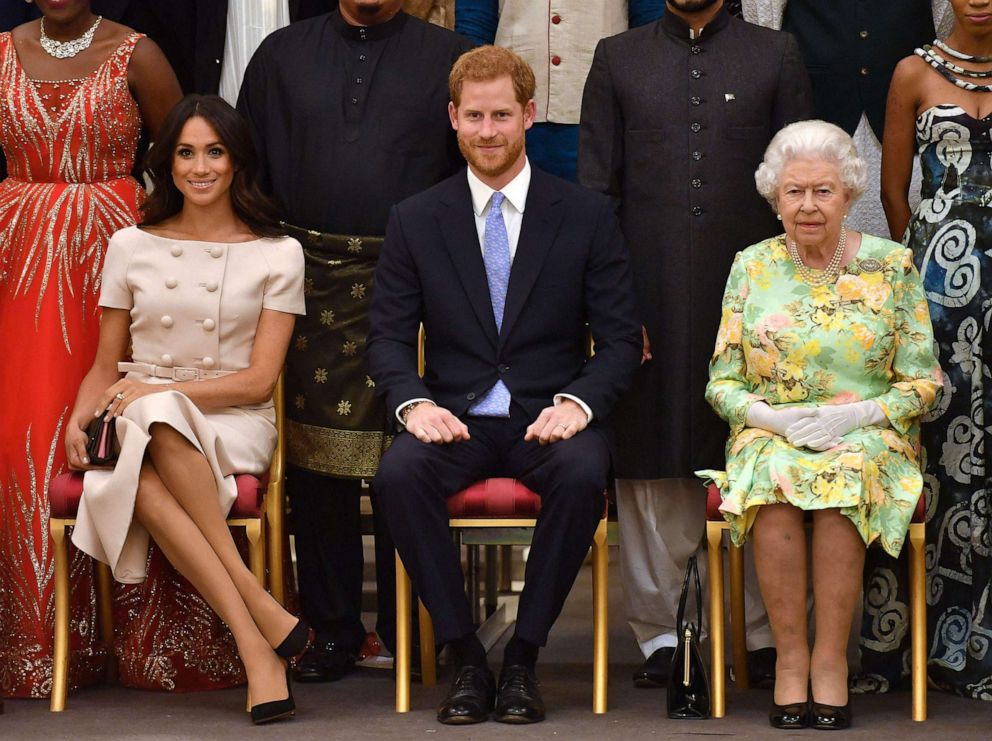
Britons were split on whether Harry and Meghan were treated unfairly, with the majority of people saying they didn't know.
ABC News spoke with Londoners about the interview, which was viewed by more than 11 million Britons. Much of what people said illuminated the poll's results. While most people interviewed did believe that Meghan had been subjected to racism, they still voiced affection for the royal family.
"I can't imagine that they lied about the racist comment. What do they gain by lying? And I've grown up in this country and I've had comments like that," a woman named Michelle, who is Black, told ABC News in Shepherd's Bush on Tuesday. "But why'd they do that [interview]? The majority of the country likes the royal family. They feel that they're a part of the royal family."
She, as others did, also questioned why Meghan would want to "put their dirty laundry out to the whole world."
Yet Michelle did say that it was important to expose racism within Britain, which she said was "covert," but she worried that the interview could make the country more divided.
"Because what's happening is I'm reading outrageous things on Facebook going, 'Oh we're fed up with this racist thing.' It's, you know, 'I'm fed up of hearing about the Black thing.' And that, in a way, is more disturbing because people's racism is sort of coming out to the surface," she said.
Another man, who identified himself as Jeff, said that while he thought there was truth to what Meghan said, he accepted that the royal family was "very old fashioned" and "stuck in their ways."
He said that he was mainly disappointed after the interview because he hoped the royal family was "making headway."
Despite the conflicting reactions, public conversations around racism within British institutions are slowly beginning to take hold.
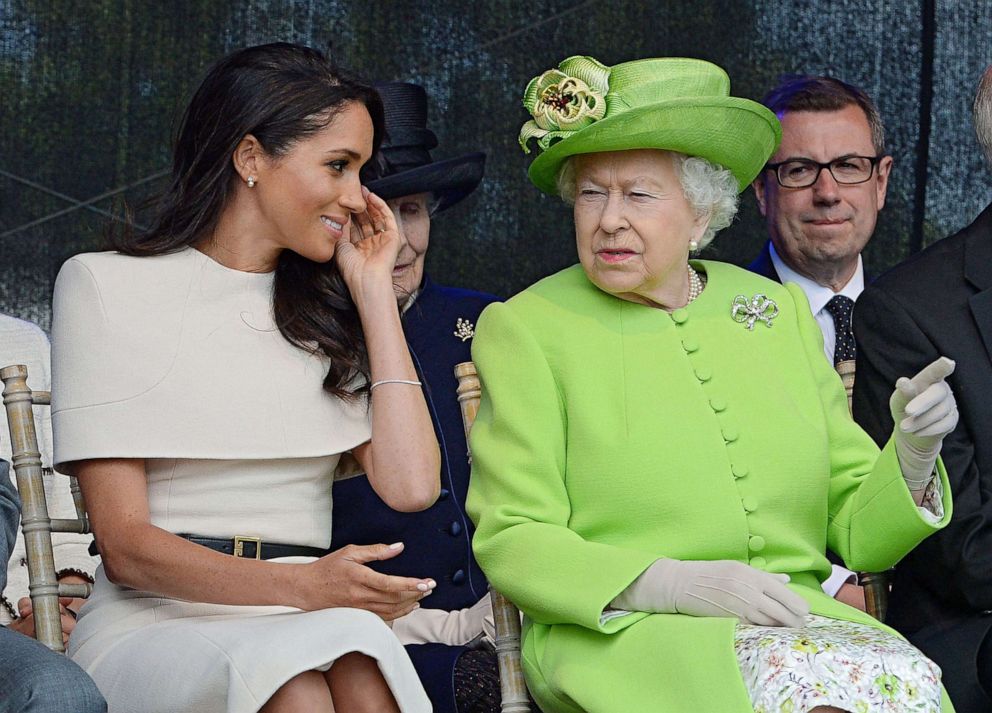
After the couple's sit-down with Oprah Winfrey, the Society of Editors in the U.K. put out a statement strongly refuting any racist coverage that Meghan received from the press. The statement also added that the press in the U.K. was not racist, prompting backlash.
More than 160 journalists of color in the U.K. responded to the statement in an open letter, saying there was evidence that racism and bigotry existed in the media.
"While Meghan’s comments shone a light on her own personal experiences of discriminatory treatment, they reflect the depressingly familiar reality of how people from Black, Asian and minority ethnic backgrounds are portrayed by the UK press on a daily basis," the letter, published Wednesday, read.
It gave examples of such racism and bigotry, including 2016 research from Cardiff University which showed that British press coverage was “uniquely aggressive in its campaigns against refugees and migrants.”
The executive director of the Society of Editors, Ian Murray, has since stepped down from his position.
"Since the statement was issued the SoE has been heavily criticized,” Murray said in a statement. “While I do not agree that the Society’s statement was in any way intended to defend racism, I accept it could have been much clearer in its condemnation of bigotry and has clearly caused upset."
Harry and Meghan's interview with Oprah was the first time they spoke about stepping as as working royals.
Both Harry and Meghan said a conversation about "how dark" their son's skin might be took place before Archie's birth. Neither would reveal who brought up the question, but Harry said the incident "was awkward. I was a bit shocked." Oprah later said Harry told her it was not the queen nor Prince Philip.
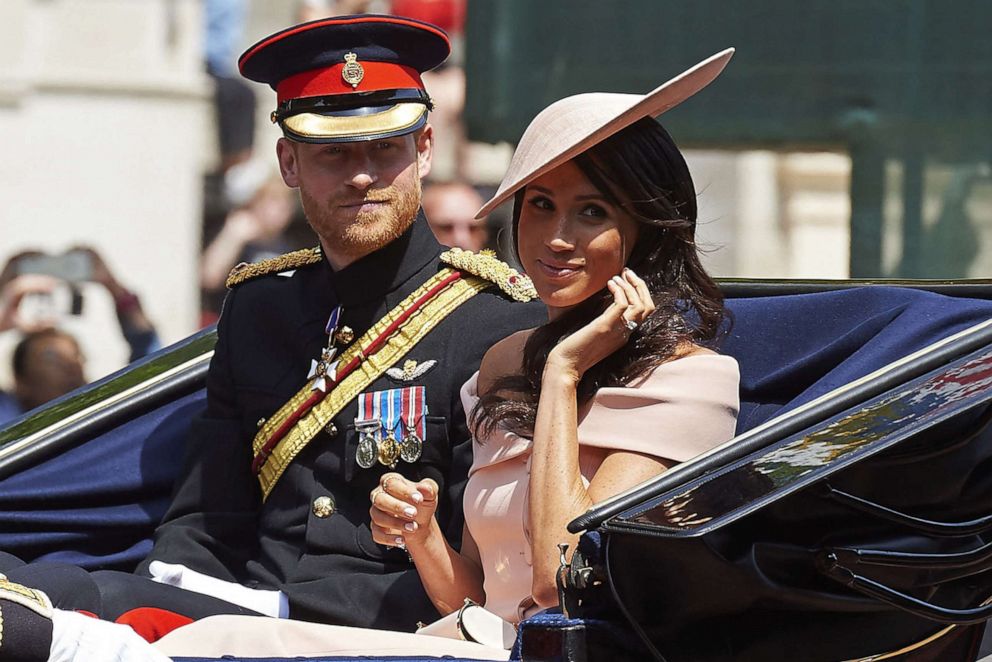
Meghan also opened up about her mental health while working as a senior member of the royal family, saying at one point she felt suicidal but was told nothing could be done because she was not a "paid employee of the institution."
"I just didn’t see a solution … I just didn’t want to be alive anymore, and that was a very clear and real and frightening constant thought," Meghan said.
Despite their allegations of unfair treatment, 32% of people believe that Harry and Meghan were treated fairly by the royal family. Another 32% thought the opposite, saying they were treated unfairly. However, 36% of people said they didn't know.
The responses differed greatly depending on the generation.
Of people aged 16 to 29, 61% said Harry and Meghan were treated unfairly. Only 13% said they were treated fairly. The majority of people (40%) aged 25 to 49 polled said they were treated unfairly, compared to 23% who said otherwise.
Yet the majority was switched for people aged 50 and over; 39% said that Harry and Meghan were treated fairly and 20% said they were treated unfairly. Half of the people who are 65 or older said Harry and Meghan were treated fairly, with just 15% saying they were treated unfairly.
Buckingham Palace released a statement Tuesday saying that the allegations of racism were "concerning" and would be addressed privately by the family.
Prince William made his first comments since the interview aired on Thursday, addressing the media to say he had not yet spoken to Harry but would do so. When asked directly if the royal family was racist, he replied, "We're very much not a racist family."
The one question Britons did agree on more, regardless of generation, was whether or not being part of the royal family was a privilege or burden. Thirty-eight percent polled that it was equally both.
